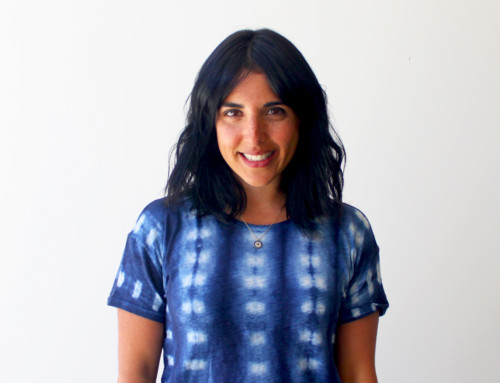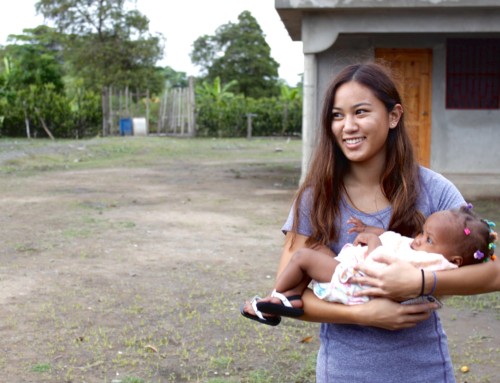“If you are called to it, you are qualified for it, therefore, your gift will make room for you to simply serve others.” – Melissa D. White

When most people think October, they think pink and breast cancer. However, October is also host month to another important issue – bullying. While most of us are long past our schooling year, bullying is still a relevant issue today.
Melissa D. White is an amazing woman, working to empower youth to take a stand against bullying. Her passion to help kids find their voice inspired her to create Writing Our Wrongs.
As this week’s #WCW and in honor of Bullying Awareness Month, Melissa shares why working with kids and empowering them to use their voice to create change became her passion.

Me: What was the inspiration behind Writing Our Wrongs?
Melissa: The idea came about one day two years ago. I was so angry at the condition of society and felt helpless in what seemed like a hopeless situation seeing the magnitude of hate speech on social media. It was after the death of Mike Brown and people were looking for answers about what was going on. The media not only reported it, but it became a platform for hate comments and spewing rage on all sides. We see this as adults. Our youth see it too. As adults, we can vote and can use our voices in our respective platforms. I wanted to activate the voice of our youth to let them know that although they are not of age to vote, their voices do count in this world. That is why our mission is to empower youth to activate their voice through writing and speech.
Me: Everything started with a pledge card; a way for people to take a stand against bullying and social injustice through writing and speech. How did the idea to focus on encouraging youth to take a stand through writing and speech come about?
Melissa: Both writing and speech were instrumental in my development as a kid. I received my first journal at eight years old, and my mom signed me up for Toastmasters when I was in seventh grade. Writing and speech is at the foundation of self-expression for me, and I wanted to share this gift with young people that have something to say. I wanted to give them a way out of trapped anger and oppressed thoughts. They are both cathartic and powerful ways to be engaged in the movement and help carry a shared message of those who fall victim to bullying and social injustice.

Me: Why is it important for you to focus on writing and speech to empower youth in this next generation?
Melissa: Writing is a powerful and underutilized tool. When putting ideas in writing, it brings things to life and affirms it. What we write is an authentic outpouring of how we feel, no filters, just free expression that lives on through your words on paper. There is something especially affirming when we handwrite out thoughts, feelings and goals. In an age of digital communications, snaps, posts, and limitation of articulation to 140 characters, writing skills, and articulate speech is becoming almost obsolete for youth.
Writing connects the mind with your hands, and speech is vocal expression that activates dialogue and critical thinking. They are both a form of release that is desperately needed for kids who need an outlet. In 85% of bullying cases, no one intervenes, and because of this most cases are unreported.
Writing and speaking gives them their voice back. It gives them power. That’s why our mottos is “Write the Change. Speak the Change. Be the Change.”

Me: Out of all the issues facing youth today, why decide to focus your efforts on taking a stand against bullying and social injustice? Does this come from a personal experience you have had growing up?
Melissa: I was bullied, but funny enough, I just didn’t look at it that way at the time. I just thought that’s what kids did. I decided to focus on it when I realized that it didn’t stop with just kids. The focus of bullying and social justice is because there is a void in the dialogue about hate speech and acts of violence among adults. We cannot existentially acknowledge the issues until we get to the root. The root is hate, and bullying is often a way that majority of kids see hate. Bullying is also at the core of multiple issues such as teen dating violence, sexism, and racism. It is synonymous with oppression, harassment, and intimidation which then lends itself to the social injustice we are witnessing in this time. These things are not mutually exclusive. They are connected and must be called out through awareness and education.

Me: With everything you have learned about bulling through this experience, what is something you think people would be surprised to know?
Melissa: I shared with someone recently at a networking event that I am a youth advocate against bullying, and their response was, “really, does bullying still exist?” I was immediately taken aback at the statement and wondered if they were on the same social media channels, following the same news stories, or even had a conversation with a school aged youth about the stress of fitting in. Let’s dispel the myth that bullying does not exist with facts:
“1 in 4 teens are bullied.”
“58% of kids say someone has said something mean to them online.”
“Every 7 minutes a child is bullied.”
I believe that if bullying is not eradicated on the playgrounds, lunchrooms, and classrooms, then bullies grow up and exhibit this behavior in the boardrooms, social clubs, and on the job. Kid bullies become adult bullies if we don’t address it head on.

Me: Has giving back always been a major theme in your life? Or something that came about later in life?
Melissa: Giving back has always been a part of my life. Charity is generational in my family; it’s a legacy. I would visit the nursing home and sing songs and take gifts to the residents there with my great-grandmother as a little girl. Before even starting kindergarten, every day staying with her was a day of doing something for others and giving back. My mother is also a social entrepreneur, and Charity Girl. I believe that real love is serving others. Giving back is a ministry. It’s a lifestyle.
Me: Writing Our Wrongs is a passion project of yours, something you have dedicated all your free time to nurturing. You do this while also working a full-time job, keeping you equally busy. How to you manage to balance both?
Melissa: Wow, it’s tough but manageable. My work schedule consists of 80% travel, so Writing Our Wrongs was developed during down time in hotels, on airplane rides, and in between travel dates and on weekends. I am passionate about it, so it is not tiring work. The key for me is to prioritize, not multitask. I commit to an hour a day in the evenings towards Writing Our Wrongs, and for me it’s an investment.

Me: People could look at your accomplishments and everything you achieved over the last few months with Writing Our Wrongs and think their efforts will never amount to anything meaningful. What would you tell them to change their mind?
Melissa: I would say, in all things, focus on service over success. Success is in the recipients of the work. Before I make any program decisions, book a workshop, or step on a platform to speak, I ask myself, “who can I help save; who can I help tell their truth and be set free?” I’ve failed more than I succeeded, and often the failures were in things that were self-centered, not service-centered. Meet the needs of others, of humanity. Now that’s meaningful work.
Me: What has been the most surprising part of your adventures through Writing Our Wrongs? What about the most inspiring part?
Melissa: The most surprising part is how receptive the kids have been to the Writing Our Wrongs. Pledge Cards and the message. They ignite me from their engagement. When I see that spark, read that kindness letter, and see them own their voice and speak their truth, I hold back tears. The most inspiring part is every time I see someone sign a Writing Our Wrongs Pledge Card. I get literal chills because I understand the power of that affirmation, “I will use my voice to impact change in my community… I will use the pen and not my fist with I am angry… I will stand against bullying, prejudice and defend the weak…” simply powerful words when you hear it spoken with authority and witness young people actually live out those truths. It’s very powerful!

Me: You’ve recently grown the mission of Writing Our Wrongs to cover other empowerment issues and even offer seminars for the kids you work with. Clearly, your true passion goes beyond taking a stand against bullying. What are some of the ways you work to empower youth in find their voice?
Melissa: Well, in November, our “Write It. Speak It.” Workshop will focus on Election Education for youth and parents. We want them to learn the art of writing and crafting a speech and educate them about how the election process works while conducting a mock debate. We will host webinars and host other youth advocates to help parents with resources on how to talk to their kids about the election, social justice, and bullying. We are also planning a wide array of community forums and additional project based workshops and scholarship initiatives in 2017.
Me: What is the one piece of advice you would want to share with someone who wants to follow in your footsteps of using their own unique talents and life experiences to give back?
Melissa: Pursue it relentlessly because someone is waiting on you to do the work and launch your business, non-profit, cause, or answer to what people need. If you are called to it, you are qualified for it, therefore, your gift will make room for you to simply serve others.

In honor of Bullying Awareness Month, we’ve teamed up with Paul Mitchell for a giveaway with their new line, Neon, which is dedicated to taking a stand against bullies.
All you have to do to enter is download the pledge card here and share on social media why you are taking a stand against bullying by using #WhyIPledge. One lucky winner will be chosen at random.

Keep up with Melissa and her work on finding an end to bullying on Facebook, Twitter, and Instagram.

















Wow I love this! So glad that she’s doing this. Bullying is a major issue. Youth or adult it exists so much it’s very sad.
It’s so true. So glad I’m not in high school and having to go through it. Melissa and the work she does is amazing.
You blog is really very good. It has cultivated a new sense of inspiration in me to start a setup of my own. I just love the way you described everything. After reading this blog I think anyone can achieve what they want.
Thank you so much for stopping by and sharing a bit about your story.
Your organization looks amazing, I love what you are doing to empower women every day.
And thank you for the kind words on my story about Melissa. My passion for this series is to do exactly what you wrote – inspire people to take that step and find their own unique way to give back. It means the world to me that you took the time to share that with me.